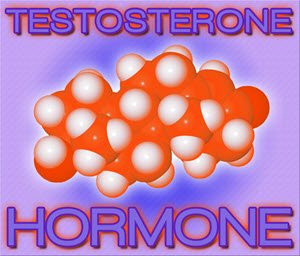 For decades, medical professionals have urged extreme caution against the use of Testosterone Therapy for men with prostate cancer or at high risk of the disease. However, as we learn more about how to treat deadly diseases like metastatic prostate cancer, we gather greater insight into how Prescription Testosterone impacts physiology.
For decades, medical professionals have urged extreme caution against the use of Testosterone Therapy for men with prostate cancer or at high risk of the disease. However, as we learn more about how to treat deadly diseases like metastatic prostate cancer, we gather greater insight into how Prescription Testosterone impacts physiology.
Dr. Mohit Khera is a doctor specializing in urology and is affiliated with the Baylor College of Medicine. He spoke at the most recent Society for Urologic Oncology meeting in 2022 to explain how ideas are changing around Prostate Cancer and Bio-Identical Testosterone.
Bipolar Androgen Therapy Could Benefit Some Prostate Cancer Patients
As more data comes in and we understand how Prostate Cancer acts on the male body, evidence strongly suggests that there are some circumstances in which Testosterone Therapy could be beneficial for patients with Prostate Cancer and that more research is warranted. This promising research is on the verge of entering Phase Three medical research, and he advocates that we move forward quickly so that doctors can more precisely meet the needs of cancer patients.
Dr. Khera is a strong advocate for further research because there are early clinical trials that suggest that high dosage Testosterone Treatments may be able to benefit the lives of certain men with prostate cancer. The specific treatment strategy is known as Bipolar Androgen Therapy. In this treatment, men alternate between absolute Testosterone suppression and super-high doses of Testosterone.
One of the problems with traditional Androgen Suppression treatments is that cancer can acclimate to the absence of Testosterone and find new ways to proliferate. The goal of Bipolar Androgen Therapy is to provide mixed signals to the cancer cells, which prevent them from adapting to a zero-Testosterone environment.
Innovative Treatments Sometimes Take Time to Become New Normal
While this new Prostate Cancer Treatment Strategy may eventually become the new normal, it takes time for doctors to become comfortable with evolving therapeutic options, especially those that appear counterintuitive.
Dr. Khera explains how there have been massive shifts in the last twenty years regarding how doctors understand how Prescription Testosterone affects Prostate Cancer and the risk of cancer. It's now widely understood that Testosterone Therapy isn't as risky as we once thought. Research shows that men taking Testosterone are more likely to have Prostate Cancer caught early due to treatment but that Hormone Therapy isn't significantly contributing to the risk of developing cancer.
There's a change happening now regarding how Testosterone is associated with active Prostate Cancer. A decade ago, Bipolar Androgen Therapy was unheard of and thought to be dangerous—today, there are active clinical trials showing that this novel Prostate Cancer Treatment may be very effective for many patients.
Filling in Knowledge Gaps for Bipolar Androgen Therapy
Even with such hopes associated with Bipolar Androgen Therapy, there's much more work to be done. While the treatment has been used with success in small clinical trials, there have yet to be highly controlled and randomized placebo studies to investigate the potential of the cancer intervention in greater detail. With more rigorous research, we can say with greater certainty how effective Bipolar Androgen Therapy may be, and if there are any particular risks we should be more aware of.
While research promotes cautious optimism regarding this treatment, many doctors have not yet come to the same outlook. Dr. Khera explains that many urologists have outdated knowledge regarding how Testosterone affects Prostate Cancer risk. As of 2018, the American Urological Association has adjusted its view on Testosterone Therapy, making clear that there is no sufficient evidence linking Low-T Treatment to an increased incidence of Prostate Cancer.
On the other hand, there also isn't enough data to provide a full risk analysis of Testosterone Treatment for men with Low-T and past Prostate Cancer. While Testosterone is clearly safer than once believed, further research will allow doctors to prescribe Testosterone HRT with even greater safety and effectiveness.
Contact Us Today For A Free Consultation

- Dalton teacher beats rare form of cancer [Last Updated On: January 25th, 2024] [Originally Added On: October 22nd, 2014]
Word Count: 659





















